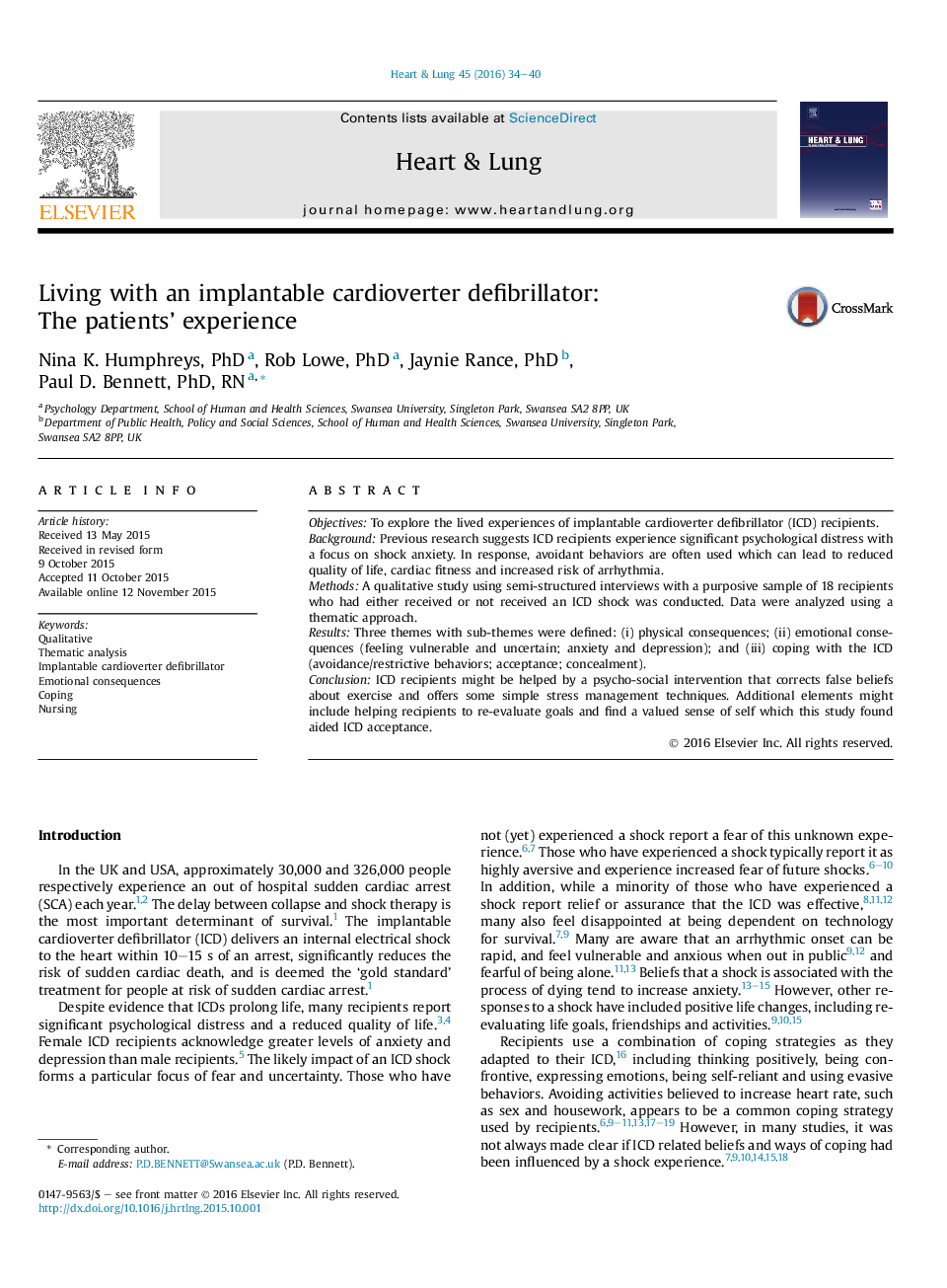| Article ID | Journal | Published Year | Pages | File Type |
|---|---|---|---|---|
| 2650371 | Heart & Lung: The Journal of Acute and Critical Care | 2016 | 7 Pages |
ObjectivesTo explore the lived experiences of implantable cardioverter defibrillator (ICD) recipients.BackgroundPrevious research suggests ICD recipients experience significant psychological distress with a focus on shock anxiety. In response, avoidant behaviors are often used which can lead to reduced quality of life, cardiac fitness and increased risk of arrhythmia.MethodsA qualitative study using semi-structured interviews with a purposive sample of 18 recipients who had either received or not received an ICD shock was conducted. Data were analyzed using a thematic approach.ResultsThree themes with sub-themes were defined: (i) physical consequences; (ii) emotional consequences (feeling vulnerable and uncertain; anxiety and depression); and (iii) coping with the ICD (avoidance/restrictive behaviors; acceptance; concealment).ConclusionICD recipients might be helped by a psycho-social intervention that corrects false beliefs about exercise and offers some simple stress management techniques. Additional elements might include helping recipients to re-evaluate goals and find a valued sense of self which this study found aided ICD acceptance.
